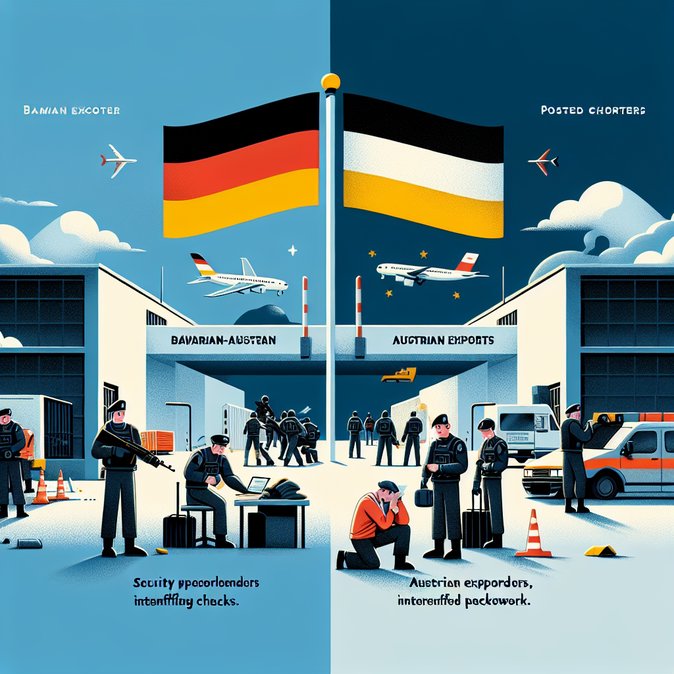
Germany’s Federal Office for Migration and Refugees confirmed on 2 November 2025 that first-time asylum claims fell by 51 % in the first ten months of the year, from almost 200,000 in 2024 to just under 100,000 in 2025. Interior Minister Alexander Dobrindt attributed the sharp decline to ‘consistent enforcement at the Bavarian–Austrian frontier,’ where German police have been empowered since May to refuse entry to migrants lacking valid documents. The policy, coordinated with Austria’s Interior Ministry, has already seen more than 18,600 would-be entrants turned back.
For Austrian businesses the numbers matter. Vienna’s Chamber of Commerce notes that a predictable immigration environment helps firms planning cross-border postings into Germany, Austria’s top trading partner. Logistics companies running just-in-time supply chains over the Salzburg–Munich corridor report shorter waiting times since ad-hoc asylum processing tents were dismantled in late summer. Freight lobby group ZV spoke of an average 12-minute reduction per truck.
![Germany’s asylum drop credited to tougher Austria-Germany border checks]()
Legal advisers, however, warn multinationals that the tighter regime increases the likelihood of spot checks on posted workers’ paperwork. “A Polish technician driving from Linz to a German client now has to be ready to show an A1 certificate and employment contract in German,” says Caroline Stadler of EY Law Vienna. Failure to do so can lead to on-the-spot fines of up to €500.
From a policy perspective, Berlin’s success adds weight to Vienna’s argument inside the EU that internal border controls remain necessary until a joint external approach is in place. Austria has already announced that its own controls with Slovenia and Hungary will stay in force until at least 11 November 2025 and is lobbying Brussels for a Schengen-wide “return hub” network. Human-rights NGOs say the measures risk normalising long-term suspension of free movement inside the EU, but public opinion in both countries continues to prioritise security over mobility.
For Austrian businesses the numbers matter. Vienna’s Chamber of Commerce notes that a predictable immigration environment helps firms planning cross-border postings into Germany, Austria’s top trading partner. Logistics companies running just-in-time supply chains over the Salzburg–Munich corridor report shorter waiting times since ad-hoc asylum processing tents were dismantled in late summer. Freight lobby group ZV spoke of an average 12-minute reduction per truck.

Legal advisers, however, warn multinationals that the tighter regime increases the likelihood of spot checks on posted workers’ paperwork. “A Polish technician driving from Linz to a German client now has to be ready to show an A1 certificate and employment contract in German,” says Caroline Stadler of EY Law Vienna. Failure to do so can lead to on-the-spot fines of up to €500.
From a policy perspective, Berlin’s success adds weight to Vienna’s argument inside the EU that internal border controls remain necessary until a joint external approach is in place. Austria has already announced that its own controls with Slovenia and Hungary will stay in force until at least 11 November 2025 and is lobbying Brussels for a Schengen-wide “return hub” network. Human-rights NGOs say the measures risk normalising long-term suspension of free movement inside the EU, but public opinion in both countries continues to prioritise security over mobility.










